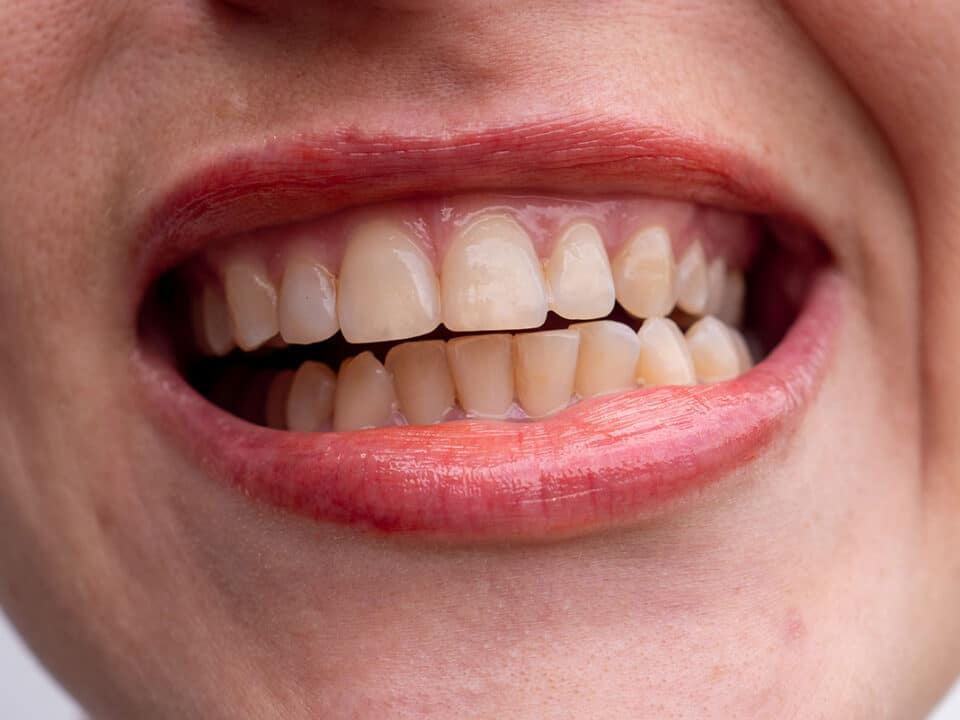Fluoride is a naturally occurring mineral that has long been regarded as a cornerstone of oral health. Whether consumed through water, applied via toothpaste, or provided as a professional treatment by your dentist, fluoride strengthens teeth, prevents decay, and can even reverse the early stages of cavities. This comprehensive article dives deeper into the benefits of fluoride, the different types of treatments available, and how its use varies for children and adults.
Table of Contents
What Is Fluoride?
Fluoride is a mineral found in natural water sources, certain foods, and dental products. It is a key component of modern dentistry due to its unique ability to prevent and reverse tooth decay.
Role in Oral Health: Fluoride bonds with the enamel, the outer protective layer of the teeth, to form a stronger, decay-resistant surface. This mineral is also integral in helping teeth recover from damage caused by plaque and acids.
Chemical Strength: On a microscopic level, fluoride promotes the replacement of hydroxyapatite crystals in enamel with fluorapatite, a much stronger and acid-resistant form.
Global Use: Fluoride has been added to public water supplies in many countries as a cost-effective way to prevent cavities on a large scale. It is considered one of the top public health achievements of the 20th century by the CDC.

How Fluoride Works
Fluoride is a powerful mineral that plays a key role in maintaining oral health by actively strengthening teeth and preventing decay. It works on a microscopic level, interacting with the enamel—the outermost protective layer of your teeth—to reverse the damage, prevent cavities, and enhance the natural repair processes in your mouth. Here’s a closer look at how fluoride achieves these benefits:
Re-Mineralization of Tooth Enamel
Tooth enamel, though incredibly strong, is constantly under attack from acids produced by bacteria and consumed through acidic foods and beverages. This daily wear-and-tear process leads to the loss of essential minerals like calcium and phosphate, a phenomenon known as demineralization. However, teeth also have the ability to regain these minerals through re-mineralization, especially when fluoride is present.
Fluoride’s Role:
Fluoride acts as a catalyst for re-mineralization by:
- Attracting calcium and phosphate ions to weakened areas of the enamel.
- Encouraging the formation of fluorapatite, a compound that is significantly stronger and more resistant to acid attacks than natural enamel.
- Acting quickly to seal microscopic cracks and prevent further damage.
Why It’s Important:
Without fluoride, the balance between demineralization and re-mineralization can tip in favour of mineral loss, leaving teeth more vulnerable to decay and sensitivity. By accelerating the repair process, fluoride ensures that your enamel stays strong and functional.
Daily Impact:
Re-mineralization happens every time you brush with fluoride toothpaste, rinse with fluoride mouthwash, or drink fluoridated water. Over time, this consistent repair process helps maintain healthier teeth and prevents the progression of minor damage.
Decay Prevention
Cavities form when bacteria in your mouth produce acids to break down sugars and carbohydrates. These acids erode the enamel, creating weak spots that can become full-blown cavities if left unchecked.
Fluoride’s Protective Shield:
Fluoride creates a barrier on the surface of your teeth, making enamel more resistant to these acid attacks. It doesn’t just sit on the enamel—it chemically interacts with it, creating a hardened outer layer that bacteria and acids struggle to penetrate.
Bacteria Control:
Fluoride also helps inhibit the growth and activity of cavity-causing bacteria, particularly Streptococcus mutans and Lactobacillus, which thrive in the plaque biofilm on your teeth. By reducing bacterial activity, fluoride disrupts the production of harmful acids.
Why It’s Important:
This decay prevention is especially critical for high-risk individuals, such as those with poor oral hygiene, high sugar consumption, or dry mouth (xerostomia), which reduces the natural protective effects of saliva.
Lasting Benefits:
Regular exposure to fluoride ensures that even high-risk teeth remain protected, slowing down or completely stopping the decay process before it can lead to cavities.
Reversal of Early Decay
Tooth decay doesn’t develop overnight—it’s a gradual process that begins with the demineralization of enamel and progresses to the formation of cavities if left untreated. In the early stages, decay appears as white spots on the enamel where minerals have been lost.
Fluoride’s Role in Reversing Damage:
- Fluoride halts the progression of early decay by boosting re-mineralization in these weakened areas.
- It restores lost minerals to enamel, effectively “repairing” the damage before it becomes irreversible.
- The process works by replacing lost hydroxyapatite crystals in the enamel with fluorapatite, which is not only stronger but also more resistant to future acid attacks.
Prevention of Cavities:
By reversing early decay, fluoride eliminates the need for fillings or other restorative procedures, saving teeth from more invasive dental work.
Why It’s Important:
This ability to reverse early decay is one of the most unique and valuable aspects of fluoride, making it a cornerstone of preventive dentistry. Even those with suboptimal oral hygiene can benefit from fluoride’s capacity to stop damage before it worsens.

Benefits of Regular Fluoride Treatments
Regular fluoride treatments are more than just a preventative measure—they are an essential component of maintaining strong oral health. Whether administered professionally at the dentist’s office or through daily use of fluoride-based products, these treatments address a range of dental issues, from strengthening enamel to protecting against advanced decay. Here’s an in-depth look at the significant benefits of fluoride treatments:
Strengthens Tooth Enamel
Enamel is your teeth’ hard, protective outer layer, serving as the first line of defence against decay. However, enamel is constantly attacked by acids produced by bacteria and consumed through food and beverages.
How Fluoride Helps:
Fluoride integrates with enamel to form a compound called fluorapatite, which is much stronger and more resistant to acid attacks than the original hydroxyapatite found in natural enamel. This fortified layer not only protects against decay but also slows down enamel erosion caused by acidic drinks like soda and citrus juices.
Long-Term Impact:
Strengthened enamel can better withstand daily wear and tear, making teeth more resilient to future damage. Over time, this reduces the need for extensive dental procedures, such as fillings or crowns.
Reduces Risk of Cavities
Tooth decay remains one of the most common dental problems worldwide, affecting people of all ages. Cavities form when acids demineralize the enamel, creating small holes that, if untreated, can grow larger and cause pain or infection.
How Fluoride Helps:
Regular fluoride treatments disrupt the acid production cycle by neutralizing bacteria that cause cavities. Additionally, fluoride promotes the re-mineralization of enamel, helping to repair areas that are starting to decay before cavities fully develop.
Studies consistently show that fluoride treatments can reduce cavity rates by up to 25% in children and adults. This statistic highlights the effectiveness of fluoride as a preventive tool for both primary and permanent teeth.
Fluoride’s cavity-prevention properties have made it a cornerstone of public health initiatives, such as community water fluoridation programs, which have significantly reduced dental decay rates in populations with access to fluoridated water.
Helps with Sensitivity
Tooth sensitivity, characterized by sharp pain or discomfort when consuming hot, cold, or acidic foods, is often caused by enamel wear or gum recession, exposing the underlying dentin. Dentin contains microscopic tubules that lead to the tooth’s nerves, and when exposed, they allow temperature changes to stimulate the nerves, resulting in pain.
How Fluoride Helps:
Fluoride creates a protective barrier over exposed dentin and helps seal the tubules, blocking external stimuli from reaching the nerves. This reduces sensitivity and restores comfort when eating or drinking.
Who Benefits Most:
Fluoride treatments are particularly helpful for individuals undergoing teeth whitening or those with aggressive brushing habits, both of which can lead to enamel thinning and increased sensitivity.
Enhanced Results:
For people with chronic sensitivity, professional fluoride varnishes, combined with fluoride toothpaste, offer long-lasting relief and help rebuild enamel over time.
Protects Against Root Decay
As people age or experience gum disease, their gums may recede, exposing the roots of their teeth. Unlike the enamel-covered crown of a tooth, the roots are made of cementum, a softer material that is more susceptible to decay.
How Fluoride Helps:
Fluoride treatments coat and protect exposed roots, reducing their vulnerability to decay caused by bacteria and plaque buildup. It also helps strengthen the dentin beneath the cementum, providing an additional layer of defense.
Aging and Gum Health:
Seniors, in particular, benefit from fluoride treatments as they are more prone to gum recession and dry mouth (xerostomia), both of which increase the risk of root decay. Regular fluoride treatments help combat these issues, preserving oral health in older adults.
Prevents Dental Work Complications
Patients with dental restorations, such as crowns, bridges, braces, or implants, are at a higher risk of secondary decay. Food particles and plaque can easily accumulate around these appliances, making it harder to clean the surrounding teeth thoroughly.
How Fluoride Helps:
Fluoride strengthens the teeth adjacent to restorations, preventing decay from forming around the edges of crowns or beneath braces. It also reinforces enamel on teeth that have undergone restorative treatments, ensuring their longevity.
Orthodontic Benefits:
For patients with braces, fluoride helps prevent white spot lesions, which are early signs of decay that can occur around brackets. Fluoride rinses or gels used in conjunction with orthodontic treatment significantly reduce the risk of these complications.
Affordable Preventive Care
Compared to the cost of restorative dental treatments like fillings, root canals, or extractions, fluoride treatments are a highly affordable preventive measure. Regular use of fluoride can save patients both time and money in the long run.
Cost-Effectiveness:
Fluoride treatments, often included in routine dental checkups, provide a low-cost solution to protect against cavities and enamel erosion. Additionally, many dental insurance plans cover fluoride applications, particularly for children.
Reducing the Need for Expensive Procedures:
By preventing cavities and decay, fluoride reduces the likelihood of needing costly restorative procedures, such as crowns, implants, or dentures, later in life.
Investment in Long-Term Health:
A small investment in fluoride treatments today can lead to significant savings and better oral health outcomes.

Types of Fluoride Treatments
Fluoride treatments come in various forms, tailored to individual dental needs and based on a dentist’s recommendations. Professionally administered fluoride treatments are a staple of in-office dental care. Dentists use high-concentration fluoride varnishes, gels, or foams applied directly to the teeth. These treatments take only a few minutes, are painless, and provide long-lasting protection by strengthening enamel and reversing early decay. Varnishes are brushed directly onto teeth and harden quickly, while gels and foams are applied using trays that fit over the teeth. Professional treatments are especially beneficial for children, adults with a history of cavities, individuals with braces or restorations, and those experiencing gum recession.
At-home fluoride products are another crucial component of dental care. Fluoride toothpaste is the most commonly used product, offering daily protection against cavities and enamel erosion. Fluoride mouthwashes provide an additional boost, reaching areas a toothbrush might miss, such as between teeth and the gumline. Dentists may prescribe high-strength fluoride products for individuals at higher risk of decay, such as toothpaste or gels with a higher fluoride concentration than standard over-the-counter options. These are especially helpful for patients with conditions like dry mouth or those undergoing treatments like radiation therapy that impact saliva production.
Community water fluoridation is one of the most effective and widespread preventive measures. By adding regulated amounts of fluoride to local water supplies, communities ensure consistent, low-level exposure to fluoride throughout the day. Drinking fluoridated water helps maintain a continuous supply of fluoride in the mouth, promoting enamel re-mineralization and protecting teeth from acid attacks. Studies have shown that community water fluoridation reduces cavity rates by up to 25% in both children and adults. It is especially beneficial for those with limited access to professional dental care or fluoride products. Organizations like the CDC and WHO endorse this method as a safe, effective, and equitable way to improve oral health.
The ideal fluoride treatment depends on individual needs and risk factors. Children benefit greatly from fluoride varnishes and toothpaste to protect developing teeth. At the same time, adults and seniors may require professional applications or prescription products to combat sensitivity, gum recession, and root decay. By combining professional treatments, at-home care, and the benefits of community water fluoridation, individuals can maximize fluoride’s protective effects and maintain strong, healthy teeth throughout their lives. Consulting a dentist is the best way to determine the right combination of fluoride treatments for optimal oral health.
Fluoride Treatments for Children vs. Adults
Fluoride treatments benefit individuals of all ages, but the application and benefits vary significantly between children and adults due to their distinct dental needs. Let’s explore how fluoride treatments are tailored to each group and why they are essential at every stage of life.
Fluoride Treatments for Children
Fluoride is especially crucial for children as their teeth are still developing. During this formative phase, fluoride strengthens both baby and emerging permanent teeth by hardening the enamel. This process helps ensure that children’s teeth are more resistant to decay, protecting their dental health as they grow. Developing strong enamel early in life reduces the risk of cavities and the need for extensive dental treatments later.
Dentists typically begin administering fluoride treatments as early as six months of age, depending on the child’s risk factors for cavities. During routine checkups, fluoride varnishes are applied to the child’s teeth. This simple and painless procedure helps safeguard against decay, often caused by sugary diets and less-than-perfect hygiene habits common among young children. Regular professional fluoride treatments can make a significant difference in reducing childhood cavities, which are one of the most common chronic conditions among children worldwide.
Additional steps may be necessary for children living in areas without fluoridated water to ensure they receive adequate fluoride. Dentists may prescribe fluoride supplements in drops or tablets to compensate for the lack of fluoride in their environment. These supplements work in tandem with brushing using fluoride toothpaste to provide comprehensive protection for young teeth. In such cases, parents need to follow their dentist’s guidance closely to prevent both cavities and overexposure to fluoride, which can lead to mild dental fluorosis.
Fluoride Treatments for Adults
For adults, fluoride remains an essential component of maintaining oral health, particularly in addressing unique challenges that arise with age and lifestyle. Gum recession, a common issue among adults, exposes the roots of teeth, which are not protected by enamel and are more susceptible to decay. Dry mouth, often caused by medications or medical conditions, reduces saliva production, making it harder for the mouth to neutralize acids and protect teeth. These factors, combined with a general increase in cavity risk over time, make fluoride treatments a critical tool for adults.
Adults who have a history of frequent cavities or suffer from dry mouth should consider professional fluoride treatments at least every three to six months. These treatments provide concentrated fluoride that strengthens enamel, prevents root decay, and reduces sensitivity. Regular application is especially important for individuals with dental restorations like crowns, bridges, or implants, as fluoride helps protect the surrounding teeth from secondary decay.
In addition to professional treatments, high-risk adults can benefit from targeted fluoride solutions prescribed by their dentist. Prescription-strength fluoride toothpaste or gels deliver a higher concentration than over-the-counter products, offering enhanced protection for those with significant decay risks. These products are particularly effective for adults undergoing orthodontic treatment or those with conditions like diabetes, which can impact oral health.

Who Needs Fluoride Treatments the Most?
Fluoride treatments benefit everyone, but some individuals have unique circumstances that make regular treatments especially important. These groups face higher risks of tooth decay or dental complications due to age, diet, medical conditions, or specific dental treatments. Understanding who most benefits from fluoride can help target preventive care and maintain better oral health.
Children and Teens
Children and teenagers are among the most vulnerable to cavities due to a combination of biological and behavioural factors. Developing teeth are more susceptible to decay because their enamel is not as fully mineralized as adults. Additionally, children’s diets often include sugary snacks and beverages, which feed cavity-causing bacteria and accelerate tooth decay. Teens face similar risks, especially with the added challenge of maintaining oral hygiene during orthodontic treatments like braces.
Fluoride is vital in strengthening both primary and permanent teeth as they emerge, providing a protective barrier against decay. Regular fluoride varnishes during dental visits and daily use of fluoride toothpaste significantly reduce the likelihood of cavities during these formative years. Fluoride supplements may be prescribed for children living in areas without access to fluoridated water to ensure their developing teeth receive adequate protection.
Adults with Frequent Cavities
Adults with a history of frequent cavities require regular fluoride treatments to address their ongoing vulnerability to decay. Dental decay often indicates underlying issues such as poor oral hygiene, dietary habits, or weakened enamel, making teeth more susceptible to further damage.
Fluoride treatments for these individuals are critical to re-mineralize weakened enamel, slow down the progression of decay, and prevent new cavities from forming. Prescription fluoride products, such as high-concentration toothpaste or mouth rinses, are often recommended in addition to in-office treatments to provide continuous protection. For these patients, fluoride is not just preventive but a key part of managing chronic dental issues.
Seniors
As people age, their oral health needs change, making fluoride treatments increasingly crucial for seniors. One of the most common issues in older adults is gum recession, which exposes the roots of teeth. Unlike the enamel-covered crown, tooth roots are protected by a softer material called cementum, which is far more prone to decay. Seniors are also more likely to experience dry mouth (xerostomia), often caused by medications or medical conditions. Reduced saliva flow makes it harder for the mouth to neutralize acids, increasing the risk of cavities.
Fluoride treatments for seniors focus on protecting exposed roots and reinforcing enamel to guard against decay. Regular professional fluoride applications and prescription fluoride products for at-home use are particularly effective in addressing these age-related concerns. For seniors wearing dentures or partials, fluoride can also help protect the remaining natural teeth from decay and ensure better oral health.
Patients with Braces or Restorations
Individuals with braces, bridges, crowns, or other dental restorations face unique challenges in maintaining proper oral hygiene. Orthodontic appliances like braces create hard-to-clean spaces where plaque and food particles can accumulate, increasing the risk of cavities. Similarly, dental restorations can leave surrounding teeth more vulnerable to secondary decay.
Fluoride is essential for protecting teeth in these situations. For orthodontic patients, fluoride treatments help prevent white spot lesions and areas of demineralization that can appear around braces. For those with crowns, bridges, or implants, fluoride strengthens adjacent teeth and prevents decay from developing at the margins of the restorations. In-office fluoride treatments, combined with daily use of fluoride toothpaste or rinses, ensure comprehensive protection.
People with Medical Conditions
Certain medical conditions and treatments can significantly increase the risk of tooth decay, making fluoride treatments vital for maintaining oral health. Conditions like Sjögren’s syndrome, diabetes, and autoimmune disorders can reduce saliva production, leading to dry mouth. Saliva is essential for neutralizing acids and washing away food particles, so its absence creates a higher risk for cavities. Similarly, individuals undergoing cancer treatments, such as chemotherapy or radiation therapy, often experience dry mouth and weakened enamel.
Fluoride treatments for these patients provide much-needed protection by strengthening enamel and compensating for the reduced natural defences of saliva. Regular professional applications, along with fluoride supplements or prescription-strength products for daily use, help mitigate the impact of these conditions on oral health.

Are There Any Risks with Fluoride Treatments?
Fluoride is safe when used appropriately, but overexposure can lead to fluorosis in children. This results in faint white spots on developing teeth, though it is generally mild and cosmetic.
How to Avoid Overexposure:
Monitor children’s use of toothpaste to ensure they use only a pea-sized amount.
Avoid swallowing fluoride products like mouthwash.
Consult your dentist if you are concerned about fluoride levels in your water supply.
Maximizing the Benefits of Fluoride
To get the most out of fluoride treatments:
- Brush twice daily with fluoride toothpaste.
- Rinse with a fluoride mouthwash for added protection.
- Drink fluoridated tap water where available.
- Schedule regular dental checkups for professional fluoride applications.
- Follow your dentist’s recommendations for prescription fluoride products if needed.
Conclusion
Fluoride is an indispensable tool in maintaining strong, healthy teeth for people of all ages and a vital part of preventative dentistry. Regular fluoride treatments help prevent decay, strengthen enamel, and address specific dental concerns like sensitivity and root exposure. While the application may differ for children and adults, the benefits are universal. By incorporating fluoride into your oral care routine and working with your dentist, you can ensure long-lasting dental health and prevent costly dental issues.
For personalized advice, consult your dentist to determine the fluoride treatment plan best suited to your needs.
Check us out on Facebook and Twitter for daily information about Oral Health from Martindale Dental, or visit our offices in Hamilton and St. Catharines.
Have more questions?
Please contact us for all inquiries or to book an appointment with one of our convenient clinic locations. We look forward to hearing from you.




